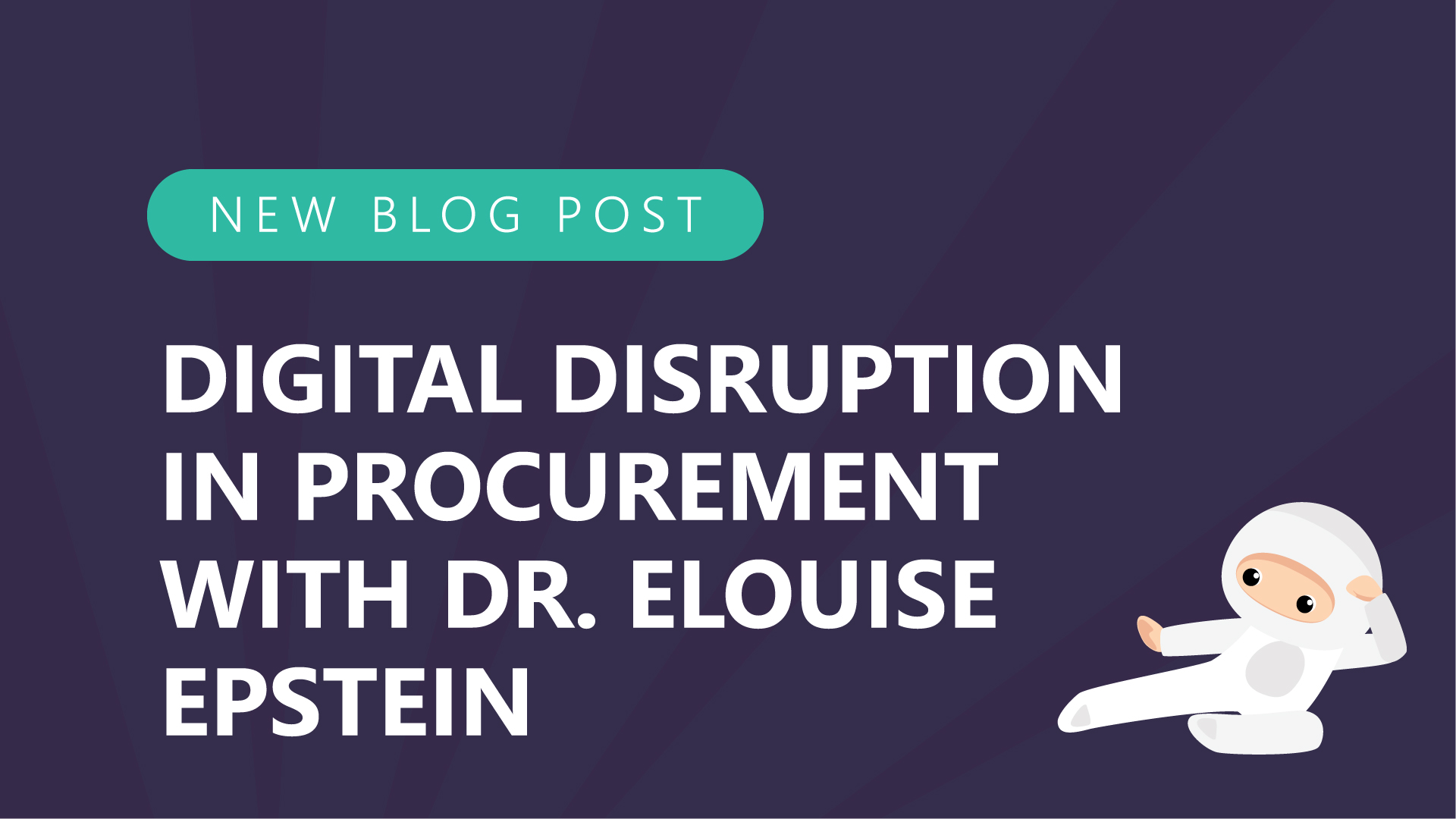Dr. Elouise Epstein—a guest on an episode of Negotiations Ninja—is an expert in the world of procurement and supply chain. She specializes in designing digital procurement & supply chain strategies for Fortune 500 companies. In the episode, she talks about the necessity for innovation in procurement. With the seismic shifts that have happened due to the coronavirus crisis, change is imperative. One topic that she goes in-depth on is the need for digital disruption in the procurement industry.
Exposing the weaknesses in the current world of procurement
Elouise points out that now—more than ever before—the weaknesses in the industry are being brought to light:
“We are seeing the exposure of weak operating models. We are seeing the exposure of weak talent. We are seeing the exposure of weak tools & technology. We are seeing—very much so—the exposure of weak consulting. Because if you’re a company and you’re hiring consultants for ‘best-in-class processes’ or ‘best in class risk modeling’ you have not been getting your money’s worth.”
As the weaknesses in the industry are being exposed, we are being thrust into digital disruption—and Dr. Elouise is all for it. She’d been advocating for it for years.
There needs to be an evolution in risk-management
Elouise points out that the problem is not only weaknesses in the system, but also the fact that consultants are coming up with limited risk models. Vendors follow in that same footprint. Suddenly, we have risk modeling tools that are completely, totally, and utterly useless.
The risk signal is useless unless you apply strategy to it and then take action. Dr. Elouise notes “It’s an equation. And if you look at the equation, the risk signal is like 10% of it. The strategy is 40% and the action is 50%.” Elouise points out that this exposes two things: One, it exposes an over-emphasis on signaling and a complete lack of understanding.
Secondly, the action piece highlights that commodity managers and category managers are not taking the actions they need to now. It’s a different discussion and it gets into talent and operating models and processes. But Dr. Elouise emphasizes that it’s one example of how this entire “best in class process” is broken. As leaders, we need to sit back and reflect on this and how everyone was dead wrong—and where to move next.
Digital disruption is a movement
Dr. Elouise believes that new procurement operating models have got to move into the digital realm. She’s a proponent of understanding emerging innovation in digital technologies and applying it to procurement and the supply chain.
She believes that consultants are the ones that have to force the difficult conversations about change and moving forward. Elouise is of the opinion that consultants aren’t just paid to help you reach your current objectives. You’re also paying consultants to help prepare for occurrences outside of the day-to-day.
Procurement people are the ones innovating and actually making things happen. They are seeing a need for dynamic processes where you take note of problems and can design processes on the fly. It’s time to think outside the four walls of your organization.
How do we build future op models? And what is the role of consultants in this going forward? How are consultants adding value?
Dr. Elouise points out that a new market is emerging with an arguably different architecture that has emerged. The industry needs to continue to move towards a much more flexible, open, and agile platform. And whoever can deliver that will be the clear winner.
To hear the entire conversation around the topic of innovation and digital disruption in the procurement industry, be sure to listen to our fascinating conversation in episode 143 of the Negotiations Ninja podcast.

